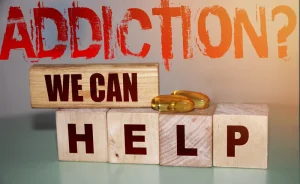
Their alcohol withdrawal symptoms are so severe that they must drink continually to avoid them. Sometimes medications may be used in alcohol addiction treatment. These medicines can help reduce the negative side effects of detoxification and withdrawal. Others can help you reduce cravings and normalize body functions.

How Long Is Drug Rehab?

Most people can handle moderate alcohol consumption without it becoming problematic, but for those with certain risk factors, it can become an uncontrollable addiction. The https://ecosoberhouse.com/ can progress to the point that it can have serious consequences for the addicts as well as those around them unless intervention and proper treatment comes into play. Sometimes people in this stage do show up for addiction treatment, but it’s not by their own volition. Typically, it’s because family, friends, an employer or perhaps a court has forced them into treatment. Unfortunately, treatment is often ineffective at this stage because individuals simply don’t believe they have a drinking problem.
How Long Are Inpatient Rehab Programs?
- These are similar to the varicose veins that some people develop in their legs.
- Some chronic alcoholics develop a condition called Wernicke-Korsakoff syndrome, which results from a thiamine (vitamin B-1) deficiency.
- Some people who achieve long-term sobriety continue to display the same impulsive and dysfunctional behaviors that they did when they were drinking.
- And the physical costs of excessive alcohol use become noticeable.
- Sometimes medications may be used in alcohol addiction treatment.
It’s unlikely that a person in this stage would even be interested in information about alcoholism. At Caron Treatment Centers, we help individuals struggling with alcohol use disorder stop drinking and complete the detoxification process, all while helping them manage alcohol withdrawal symptoms. At this crisis point and final stage, everyone is aware of the effects of alcoholism. Serious health problems ensue, from liver and kidney disease risk factors, to heart failure, depression, and anxiety. The person struggling with alcoholism is rarely without a drink but thinks no one notices. This stage frequently results in alcohol-related deaths for users who do not enter treatment.
- They believe that the risk of relapse always remains and that the disease requires lifelong treatment.
- Additionally, creating supportive environments and providing resources can aid in addressing alcohol addiction effectively.
- Early intervention and support are crucial in addressing alcohol addiction and promoting recovery.
- By identifying and addressing risk factors and warning signs at an early stage, individuals can make informed choices about their alcohol consumption and seek help if needed.
- If you or a loved one struggles with alcohol use and cannot cut back on drinking, there may be a danger of alcoholism.
Alcohol use disorder care at Mayo Clinic

Learn how to redefine your relationship with alcohol, establish healthier habits, and seek effective support. Unravel what benzodiazepines are, their uses, side effects, and mental health impacts in our revealing guide. The two manuals use similar but not identical nomenclature to classify alcohol problems. Take our free, 5-minute substance abuse self-assessment below if you think you or someone you love might be struggling with substance abuse. This evaluation consists of 11 yes or no questions that are designed to be used as an informational tool to assess the severity and probability of a substance use disorder. The test is free, confidential, and no personal information is needed to receive the result.

Recovery from AUD is marked by stages of abstinence, withdrawal, repair, and growth. While the process may take several years, the outcome is a happier, healthier life where you have the freedom to fulfill your full potential. While the abstinence stage of withdrawal causes mostly physical symptoms, post-acute withdrawal is very psychological and emotional.
- Discover the devastating three krokodil effects, from skin damage to mental health consequences.
- If you’re concerned about someone who drinks too much, ask a professional experienced in alcohol treatment for advice on how to approach that person.
- The reasons people drink and their risk factors vary greatly.
- Discover addiction help at PA rehabilitation centers, journey from darkness to recovery starts here.
- Individuals will continue drinking despite the negative consequences that come with it, they develop cravings for alcohol, and they may struggle to control intake levels once started.
- Between 90 and 100 percent of alcoholics develop a fatty liver, which can progress to cirrhosis.
End-Stage Alcoholism: Severe Health and Social Consequences
- The negative consequences of alcoholism become irreversible at this point.
- They may also rationalize, or make excuses, for their behavior.
- From there, you will work on maintenance (learning to live sober) and, finally, transcendence or full recovery.
- Since withdrawal symptoms tend to ebb and flow, you may be tempted to feel like you’re not making progress ― even though in reality, you’ve come a long way.
- In addition, medications may be able to help ease or stop drinking and guard against relapses.
As alcohol consumption increases, the liver adapts to break down alcohol more quickly. Over time, repeated alcohol exposure also alters a person’s brain chemistry. To counteract the sedating effects of alcohol, for example, the brain increases the activity of excitatory neurotransmitters, which speed up brain activity. But some people who drink face a risk of developing this chronic and progressive disease, which affects roughly 1 in every 8 Americans and contributes to about 88,000 deaths annually. People with alcohol addiction physically crave the substance and are often inconsolable until they start drinking again.
What puts people at risk for developing AUD?

You’re aware of the adverse effects, but no longer have control over your alcohol consumption. The first stage of alcoholism is a general experimentation with alcohol. These drinkers may be new to different forms stages of alcoholism of alcohol and likely to test their limits. Alcohol misuse and addiction can have harrowing and hazardous side effects at every phase. Effective, evidence-based treatment can help and recovery is possible.
Discover what is Dilaudid addiction, its dangers, signs, and effective treatment options. At this point, it may become obvious to those around you that you have a problem with alcohol, and you may also start to recognize that there is an issue. Many people addicted to alcohol begin hiding the amount they drink or making excuses for it during this phase. You may also have problems completing tasks at work, home or school, and your relationships with others may start to crumble.
Is Binge Drinking Alcoholism?
Here, we briefly share the basics about AUD, from risk to diagnosis to recovery. This article introduces a number of AUD topics that link to other Core articles for more detail. Contemplation can be an uncomfortable process, and feelings of guilt, shame, hopelessness and desperation are common as people reach this crossroads in their addiction journey.

